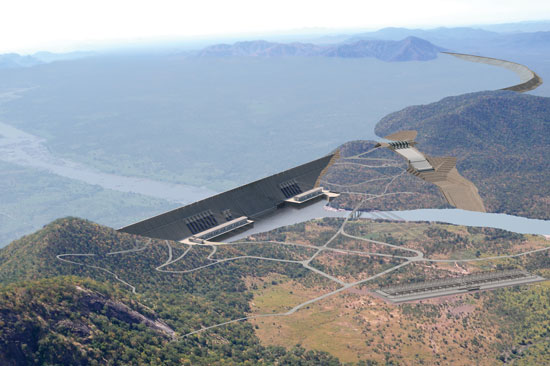Egypt’s Foreign Minister Sameh Shoukry is visiting Ethiopia next week to try and help revive talks on the Grand Ethiopian Renaissance Dam, a foreign ministry spokesman has said.
The project in question is a multi-billion dollar dam being constructed on the Nile river.
The bone of contention in the dispute which also involves Sudan is a share of the waters of the Nile that stretches 6,695 km (4,184 miles) from Lake Victoria to the Mediterranean and is the economic lifeblood of all three countries.
Ethiopia says the dam is essential to its development and has repeatedly sought to reassure Egypt.
Controversy on huge Ethiopian dam deepens after futile meeting
However, Egypt is worried about its annual share of 55.5 billion cubic meters of the Nile River water if construction of the dam goes on to completion. The Grand Ethiopian Dam is expected to be the largest in Africa.
Egypt’s efforts to persuade Addis Ababa to engage in closer coordination over the Grand Ethiopian Renaissance Dam appear to have made little headway.
It is not clear whether the talks will succeed this time round. Similar talks held in Egypt last month ended without any concrete agreement.
Last month, Egypt issued a stern warning to Ethiopia over the construction of the dam saying “water is a matter of life or death.” and that “No one can touch Egypt’s share of water.”
But Ethiopia has indicated that it will forge ahead with the dam construction that is already 60% complete.
Experts think that if no agreement takes place between the three countries, Ethiopia’s move to begin filling the dam on the Nile would be considered a clear violation of the tripartite Declaration of Principles on Ethiopia’s Renaissance Dam signed by the leaders of the three countries.
“Any unilateral attempt made by Ethiopia to initiate filling the dam would lead to the failure of the current technical discussions between the three countries,” said Dr. Ayman Shabana, professor of political science at the Institute of African Studies, Cairo University.

